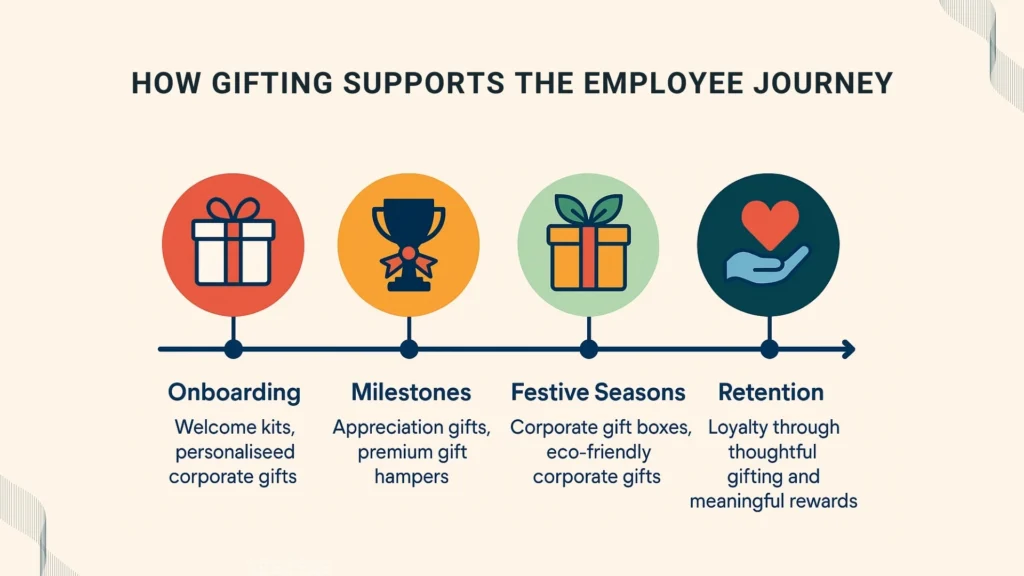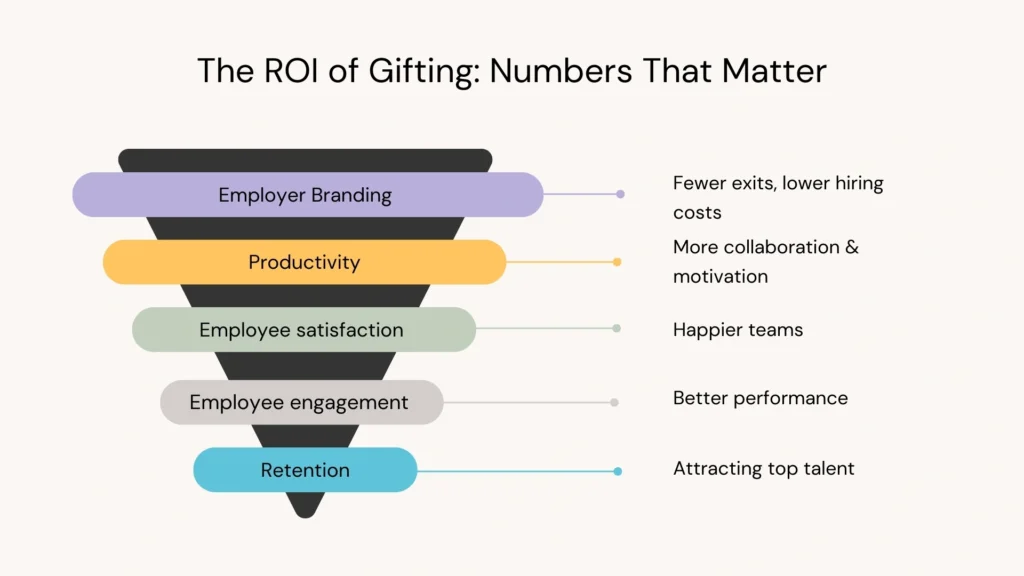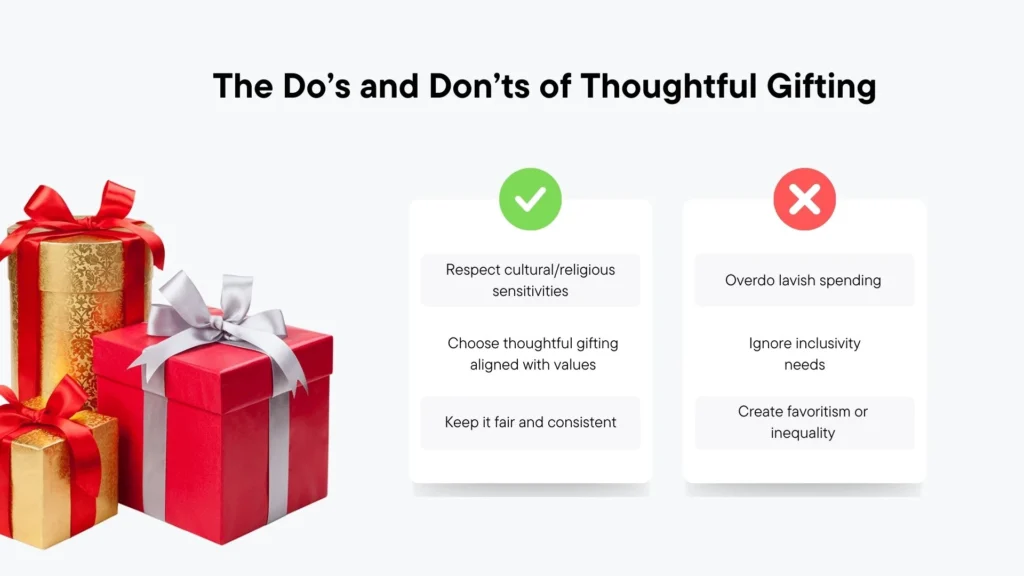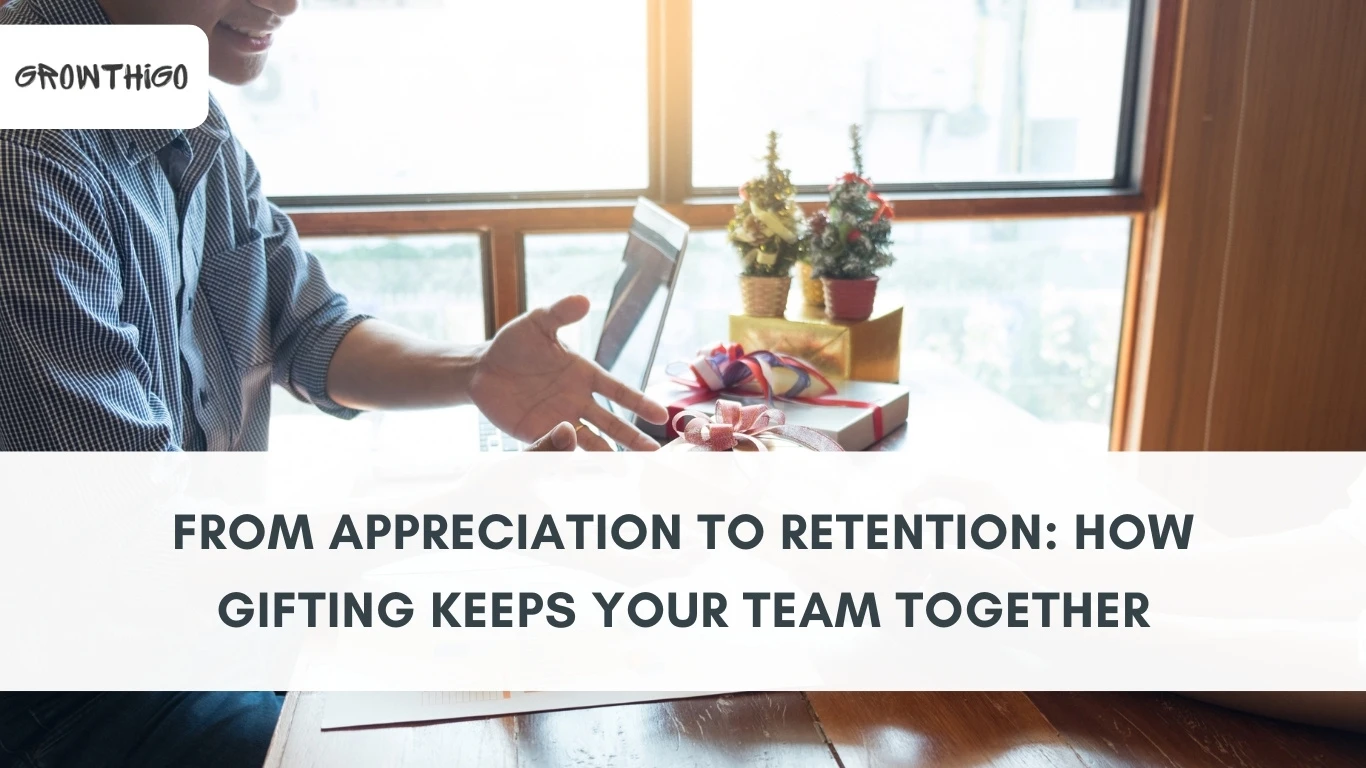Workplaces thrive on connection, recognition, and trust. While salaries and benefits matter, it’s often the unexpected gestures of appreciation that keep teams motivated, engaged, and loyal. Considerate gifting has become more than a company protocol in recent years; however, it is a tactical asset that can affect team cohesiveness, improve culture, and potentially retention rates.
When done right, gifting communicates gratitude, reinforces company values, and builds a sense of belonging that numbers on a payslip alone cannot achieve. Let’s explore how gifting moves the needle from appreciation to retention, covering both the well-trodden aspects of employee engagement and the often-overlooked dimensions of ROI, inclusivity, and cultural sensitivity.
Why Gifting Resonates with Teams
Fundamentally, gifting exploits the psychology of human beings. A token of appreciation suffices to trigger the feeling of appreciation and recognition which can in turn trigger employee satisfaction and motivation. Personalized or symbolic gifts help to create emotional ties as opposed to generic perks.
Corporate gifts to staff such as wellness gifts (aromatherapy sets, fitness products, or mindfulness packages) are one such example of this; it shows their interest in physical and mental health. On the other hand, corporate gift boxes with local delicacies or luxury gift hampers can make events like work anniversary a group team building activity, where they team up.
Gifts delivered remotely, such as a digital experience, e-voucher, or package delivered directly to your door, have become critical in helping to bridge the physical divide in a world of hybrid and distributed teams, so that people can feel connected to the bigger team identity.
From Onboarding to Milestones: Gifts as Cultural Touchpoints
Companies increasingly use gifting at strategic moments across the employee journey:

- Onboarding: A branded kit with personalised corporate gifts like notebooks, mugs, or tech accessories introduces new hires to company culture.
- Milestones: Celebrating birthdays, promotions, or project completions with appreciation gifts fosters recognition.
- Festive Seasons: Corporate gifts India often include Diwali hampers or seasonal eco-friendly corporate gifts that respect local traditions while reinforcing sustainability.
Each of these touchpoints tells employees: “You belong here, and your presence matters.” When aligned with values, these gestures go beyond objects—they build culture.
The ROI of Gifting: Beyond Feel-Good Gestures
A common oversight in many workplace strategies is treating gifting as an expense rather than an investment. Yet, the ROI is tangible if measured correctly:

- Retention Rates: Teams that feel valued are less likely to explore external opportunities. Thoughtful gifting programs can reduce turnover and associated hiring costs.
- Engagement Scores: Surveys often show boosts in employee engagement following recognition-driven initiatives.
- Productivity: Recognized employees are more motivated, translating into improved collaboration and output.
- Employer Branding: Sharing corporate gift ideas on social platforms positions companies as people-first employers, attracting top talent.
By linking gifting to metrics like retention and engagement, leaders can justify budgets with confidence and integrate gifting into a long-term people strategy.
Inclusivity and Ethical Boundaries in Gifting
Even as gifting makes teams stronger, it also carries some undertones. Inclusivity and fairness must remain central. Overlooking diversity in preferences, religious, cultural, or dietary can backfire. For instance, gifting wine hampers in regions where alcohol is taboo can alienate employees rather than unite them.
Likewise, privacy should not be violated under the name of personalization. Gifts that pertain to wellness (health) should be optional, but not compulsory to prevent unease.
Compliance is also an ethical boundary. In direct sales, extravagant luxury corporate gifts can bring up worries of favouritism or conflict of interest. Clear policies on permissible value and type of corporate gifts for clients help maintain transparency and trust.
Budgeting and Scalability: Strategy Over Random Acts
Budgeting is one of the missed gifting conversations. A sustainable gifting budgeting approach would help create equity between teams and eliminate situations in which certain staff members would be presented with gifts that are relatively more valuable.
A strategic framework contains:
Annual Allocation: Each worker is given a specific budget and onboarding, milestones and festivals are also taken into consideration.
Tiered Gifting: Differentiate among the everyday appreciation gifts (little tokens), project-focused meaningful gifts, and milestone-based premium corporate gifts.
Scalability: By collaborating with corporate gifting companies, it becomes easy to purchase corporate gift boxes in bulk or utilize some catalogues of premium gift hampers, which allows executing it on a large scale.
It is a procedural method that will turn the gifting process thoughtful, foreseeable, and cost-effective.
Personalisation and the Shift to Meaningful Rewards
Generic gifts often miss the mark. The modern labor force is demanding individuality and genuineness. Corporate gifts that are customised: engraved desk items, labelled technology devices, personalised stationery, all these are indicators of thoughtfulness. Personalization does not necessarily need to be physical.

Examples of valuable rewards that would correspond to personal growth are experiences like a wellness retreat voucher or an online learning subscription. When companies customize their gifts, they increase the transactional to transformational level.
Cross-Cultural Sensitivity in Global Teams
With the growth of businesses in the international sphere, cultural sensitivity in gifting is an aspect that should not be overlooked. A gift that delights employees in one region may be inappropriate elsewhere.
- In India, corporate gifts India often tie into festivals like Diwali or Holi, with emphasis on eco-friendly corporate gifts and sweets.
- In Japan, gift presentation matters as much as the item itself, reflecting respect and attention to detail.
- In Western markets, wellness-oriented or experiential corporate gifts for employees are increasingly popular.
Culturally crafting gifts is one way through which organizers not only evade offensive but also show inclusiveness, a reflection that fellow team members feel part of the wider team.
Premium, Luxury, and Sustainable Trends
The landscape of gifting is shifting rapidly. Today’s workforce values both luxury and sustainability:
- Premium corporate gifts such as high-end headphones or branded tech accessories cater to professionals who appreciate sophistication.
- Luxury corporate gifts like leather organizers, fine pens, or travel vouchers appeal to senior leaders or client partnerships.
- Eco-friendly corporate gifts from reusable drinkware to bamboo desk items align with global sustainability goals while projecting responsibility.
These trends are converging on companies providing premium gift hampers that combine the elements of indulgence with eco-conscious products that provide both prestige and purpose.
Gifting in Remote and Hybrid Workplaces
As hybrid models are standard today, the trick is to keep the team together in a distributed team. This is where remote team gifts are required.
Digital-first gifting experiences, like subscription boxes, wellness apps or e-gift cards, work well in bringing together virtual employees. However, physical boxes have not disappeared: when you drop a corporate gift box on the doorstep of a person, you share a moment together, and they feel like they belong to something larger.
When designed inclusively, remote gifting strategies help combat isolation, boost morale, and maintain team bonding across borders.
The Hidden Risks of Gifting
Although the advantages of gifting far surpass the disadvantages, overlooking the traps of gifting can be more detrimental than beneficial:
- Favoritism: Unequal or inconsistent gifts may create divisions within teams.
- Expectation Cycles: Overly lavish gifts can set unsustainable precedents, leading to disappointment when scaled back.
- Cultural Offense: Overlooking sensitivities can unintentionally alienate recipients.
These risks cannot be mitigated without guidelines, communication, and an emphasis on equity.
Why Partnering with Specialists Matters
Gifting programs can overwhelm businesses that have hundreds of thousands of staff members to execute. Working with corporate gifting companies means having access to curated collections of corporate gift ideas, logistics services to send clients or employees corporate gifts, and may even enable customization at scale.
These partners frequently provide tech-enabled channels in which employees could select their desired corporate gifts to employees, eliminating the possibility of irrelevant and wasted products and increasing inclusivity.
FAQ’s
Corporate gifting encourages team bonding by creating shared experiences, celebrating milestones, and showing appreciation, which strengthens relationships within the workplace.
Thoughtful gifting aligns with company values, respects cultural differences, and reflects individual preferences, turning gifts into meaningful rewards rather than transactional gestures.
Popular corporate gifts for employees include wellness gifts, premium gift hampers, and personalised corporate gifts such as engraved accessories, eco-friendly products, or curated corporate gift boxes.
A gifting budget strategy should include per-employee allocations, tiered gifting (everyday tokens vs. milestone rewards), and scalability for consistent and fair gifting.
Cross-cultural nuances matter: what works in corporate gifts India may not be suitable elsewhere. Sensitivity to religion, traditions, and local etiquette ensures gifts unite rather than divide.




















